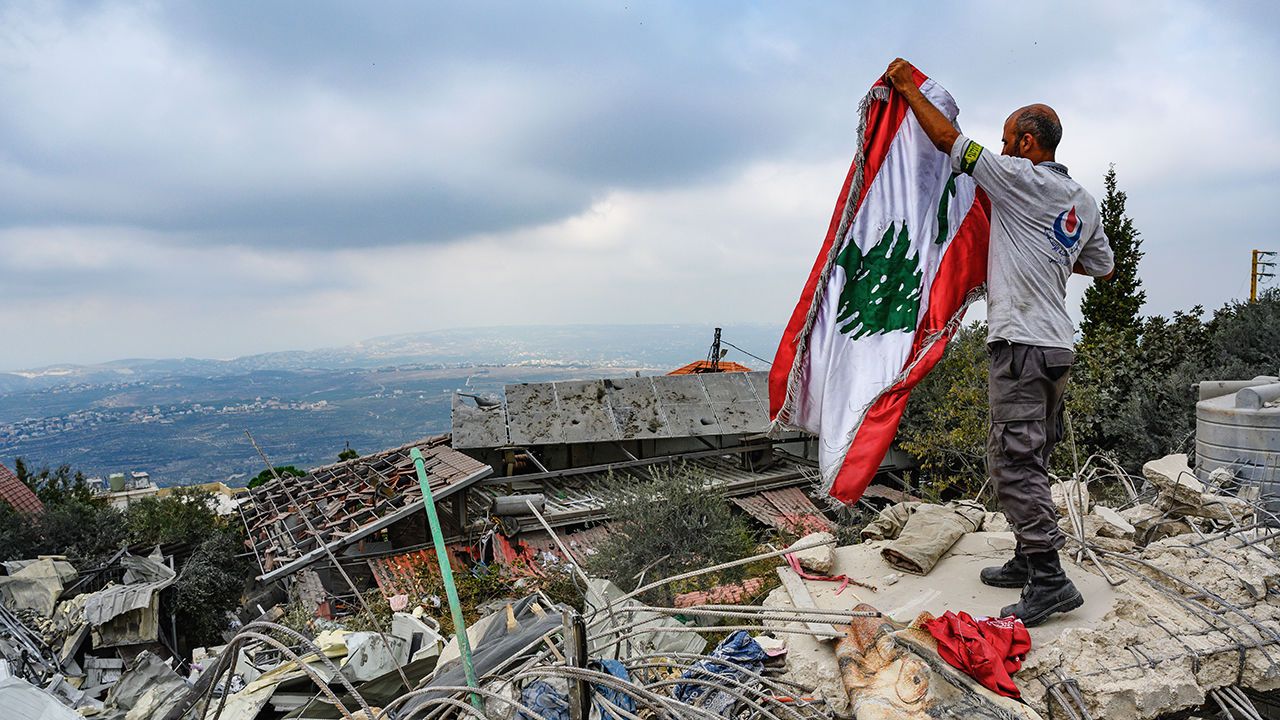Joseph Aoun Ascends Lebanon Leadership: A Splash of Hope for a Troubled Nation
The small yet strategic Mediterranean nation of Lebanon has been struggling with a punishing economic crisis, extensive corruption, and a substantial political power vacuum, not to mention the military engagements between Hezbollah and Israel. However, the tides are seemingly turning for this beleaguered country. Joseph Aoun, an individual known for his successful tenure as the army chief, has been elected by parliament as the new president, marking a beacon of hope for the Lebanese people.
On Thursday, a red carpet welcome was set for Aoun at the presidential palace that had been vacant for a long time, signaling the much-anticipated resumption of political stability. The presidential seat had been unattended since October 2022 when Michel Aoun- the outgoing president with no relation to Joseph Aoun, ended his term as scheduled.
Such a significant political shift was welcomed with fervent enthusiasm on the streets of Beirut. Candies were joyously distributed amongst the populace and portraits of the newly elected president promptly graced the capital’s streets. The election of Aoun heralds what many see as an undeniable opportunity for a fresh and unifying political beginning in a country that has been marred with deep-seated religious divisions.
Since October 2022, political factions within Lebanon had been at an impasse, unable to come to a consensus on a suitable candidate for the presidency. This debilitating deadlock can, in part, be accredited to the overwhelming influence of Hezbollah—an Iran-backed political-military faction with an unsettling level of control in the country.
Until recently, Hezbollah, acting as a quasi-state that held enormous sway over the political landscape, continually obstructed the candidacy attempts for president and prime minister offices. Nonetheless, the climate is changing. Post the war with Israel and due to the turbulence in neighboring Syria, the once formidable militia is on its knees, significantly weakened.
Hezbollah’s stronghold was anchored on the substantial arsenal of weapons smuggled into Lebanon from Iran, with Syria serving as the conduit. However, conjectures currently suggest that the organization was left with no alternatives but to accede to the election of Aoun.
In his inaugural address, Aoun foretold the dawn of ‘a new phase’ in Lebanon’s history. There was a potent undertone to his promise to preserve exclusive state control over weaponry—seemingly an ultimatum to Hezbollah, which has notoriously refused to surrender its weapons. Folks applauded extensively during his speech, indicating the people’s hope for a new, peaceful direction.
The decline in the influence of Hezbollah and other Iranian proxies should be construed as excellent news for Lebanon. This development signifies the removal of a significant impediment to the aid and assistance that have been long due to help rebuild the Lebanese economy.
With repetitive political strife and fiscal mismanagement casting extended shadows over its prospects, it can finally be said that Lebanon can see some light at the end of a long, dark tunnel. Aoun’s appointment is a hint at the optimistic revival the country has been yearning for.
It must be remembered that Lebanon’s economic crisis predates the military confrontation between Israel and Hezbollah that occurred in October 2023. The World Bank had already flagged the Lebanese economic predicament, which kicked-off in 2019, as one of the most severe global crises since the mid-1800s.
The new president Aoun’s commitment to reducing the influence of armed groups like Hezbollah, pivots Lebanon towards a path that encourages international confidence in its stability. It is a much-needed change in a country where unstable political forces have hampered economic growth and development.
The stark weakening of Hezbollah’s capacity is particularly significant considering the group’s refusal to demilitarize, raising concerns not only within Lebanon but also among foreign nations. Aoun’s promise to disarm such groups portends well for the long-awaited tranquility Lebanon needs to rebuild itself.
The easing of political tensions and the promise for a more assertive leadership offers a glimmer of hope for the Lebanese to finally start climbing out of the economic abyss. It is crucial now more than ever for the international community to rally behind Lebanon and provide the necessary assistance it needs for recovery.
Undoubtedly, the path to recovery for Lebanon is fraught with challenges. But with decisive leadership, steely resolve, and international support, it is possible that the nation can overcome this and finally restore economic stability and political tranquility.
In conclusion, Aoun’s ascendancy represents an important milestone in Lebanon’s history, one that could culminate in the country emerging from the shadows of political stalemates and destabilizing forces. His commitment to focus on disarmament and national unity could be instrumental in silencing skeptical voices and instilling a renewed sense of hope for a better, more prosperous Lebanon.

